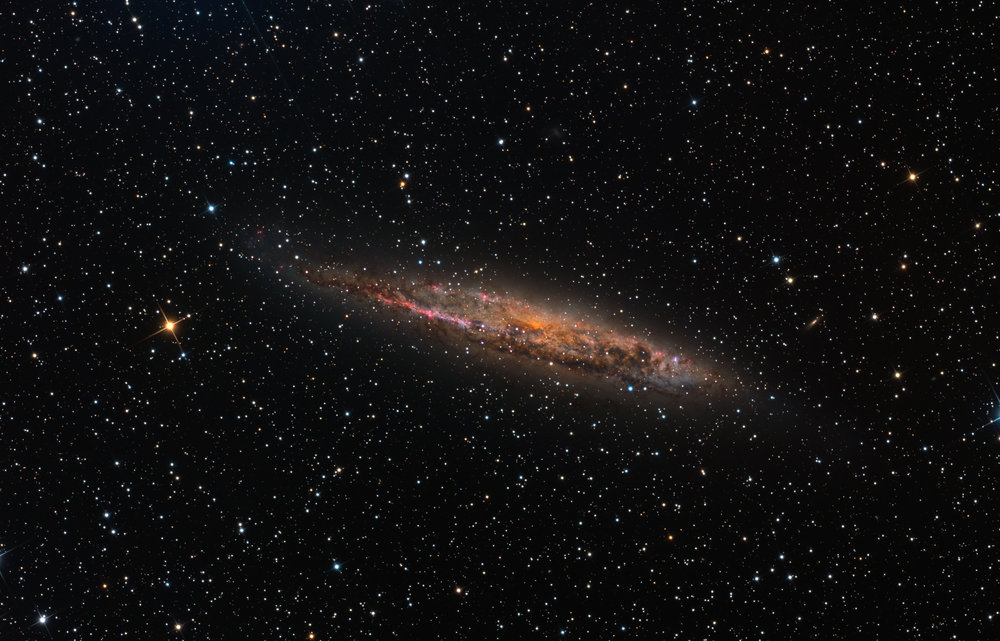BDanielMayfield wrote: ↑Thu Aug 22, 2019 11:29 am
orin stepanek wrote: ↑Thu Aug 22, 2019 10:53 am
Looks to have a lot of dust!
Indeed so! In fact, I can't remember ever seeing an APOD of a galaxy so chock full of dust.
I imagine a lot of star forming in this galaxy!

Well, at least we can say for sure that there WAS a lot of star forming in this galaxy's past, as dust is the accumulated ash (metals) of generations of stars that have come and gone. But stars need gas (mostly hydrogen) to form and run. Could this galaxy be depleted in gas since it has already converted so much of its fuel into metals?
Indeed, this galaxy seems to be churning and choking with dust! But while it contains huge amounts of dust itself, it is also reddened by dust in our own galaxy.
NGC 4945. IC 342 edge on?
Photo: Martin Pugh.
IC 342, "The hidden galaxy". NGC 4945 face on?
Photo: Arturas Medvedevas.
It is interesting to compare NGC 4945 with IC 342, which is called "The Invisible Galaxy" because it is hiding behind so much Milky Way dust! NGC 4945 is also reddened by foreground Milky Way dust, but it is choking in its own dust, too. Note that both these galaxies are yellowish in color (because of dust reddening), but both of them show off red emission nebulas ionized by young blue stars. But the blue light from the young stars is scattered away by all the dust.
But hey, look at the similarities between these two galaxies!
Total B magnitude, NGC 4945:
9.27.
Total B magnitude, IC 342:
9.21.
Effective B-V index, NGC 4945:
1.36 (that's very red).
Effective B-V index, IC 342:
1.10 (also red, but not quite so red).
B magnitude minus far infrared magnitude, NGC 4945:
2.58 (that's very infrared and dusty).
B magnitude minus far infrared magnitude, IC 342:
2.26 (that's also infrared and dusty).
Moreover, Principal Galaxy Catalog claimed that the optical galactic luminosity of IC 342 is
the same as the optical luminosity of the Milky Way, and today's APOD caption claimed that NGC 4549 is
almost the same size as the Milky Way!
Finally, consider the weird shape of NGC 4945. You know what its shape looks like, don't you?
NGC 4945. Photo: Martin Pugh.
Oumuamua, interstellar asteroid.
Illustration: ESO/M: Kornmesser.
 Nearby Spiral Galaxy NGC 4945
Nearby Spiral Galaxy NGC 4945

